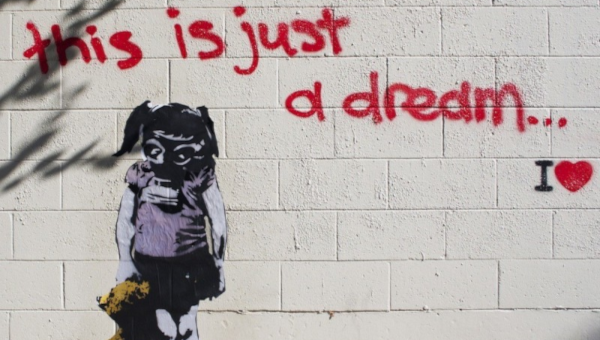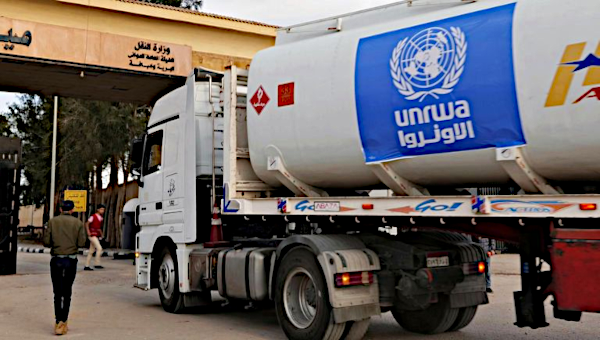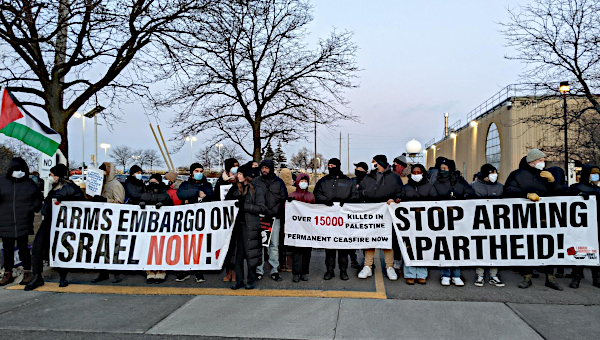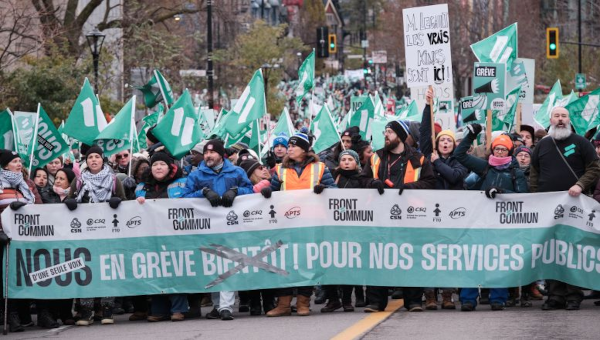Canadian Funding for the Only Palestinian Research Center in Israel Cut
Added to the list of civil society organizations under attack in Canada by the Harper government’s devastating position on the Zionist-Palestinian conflict is MADA al-Carmel, the Haifa based Arab Center for Applied Social Research. The Canadian government owned International Development Research Centre (IDRC), despite having had a long-standing relationship with the research center without any complaints of the quality of its academic and social research, abruptly terminated two grants worth $796,500 for two of MADA’s most significant projects. The first project is a 36-month study of the various forms of and limitations to Arab political participation in Israel, and the second, another 36-month initiative, seeks to critically examine Israel’s political and economic policy and practice and analyze the effects of Israeli colonialism on the political and economic realities of Palestinian women inside Israel.
In response to the unexpected termination of promised funds, the Haifa based research center is suing the Harper government in the Canadian Federal Court with the aim of restore the funding for the two research projects and obtaining an acknowledgment that the IDRC violated its right to free expression as protected by the Charter of Rights and Freedoms. The motion put forward by MADA argues that government involvement along with political pressure through written submissions to Members of Parliament from the Jerusalem based pro-Israel organization NGO Monitor led to the unprecedented decision by the IDRC. As expected, IDRC Communications Director Angela Prokopiak denied both government interference and guidance in the decision to abruptly withdraw funding for MADA’s academic initiatives. However, while the IDRC may be structured like a private or independent enterprise, in that it is responsible for its own budgetary allocations, as a Crown corporation it is nevertheless a government-owned organization which receives the bulk of its funding from Parliamentary appropriations and is ultimately accountable to the government for the conduct of its activities.
Canada’s Pattern of Attacks on Civil Society Groups
Of course, MADA is not the only civil society organization targeted as a result of its criticism of Israel’s historical and ongoing crimes. Many prominent civil society organizations are regularly accused by NGO Monitor (and other pro-Israel groups) of allegedly making “biased and distorted” submissions to international bodies and seeking to “demonize Israel,” including: Adalah: The Legal Center for Arab Minority Rights in Israel; Ittijah: Union of Arab Based Community Organizations; Al-Mezan Center for Human Rights; Al-Haq Legal Center; BADIL Resource Center for Palestinian Residency and Refugee Rights; Palestinian Center for Human Rights; and Gisha: Legal Center for Freedom of Movement. Further, NGO Monitor specifically cites criticism of legally enshrined discrimination against non-Jews living within the Israeli regime and support of the call for Boycott Divestment and Sanctions as reasons why North American and European donor organizations and governments ought to cease funding. Particularly since the 2008-09 onslaught on Gaza by Israel, Palestinian and Israeli civil society organizations have experienced an increase in the pre-existing institutional and financial pressures they faced as a result of their diligent research and condemnation of Israeli crimes.
In Canada, the termination of MADA’s funding is part of a long-standing pattern of an organized, well funded, and resourceful government supported campaign against civil society organizations with visibility who fail to maintain an uncritical stance on Israeli violations against human dignity. Many remember last year’s Inaugural Conference on Combating Anti-Semitism where MP Jason Kenney declared that the Canadian Arab Federation and Canadian Islamic Congress should not expect to receive government funding given their criticisms of Israeli war crimes during the second Lebanon war in 2006, the invasion of Gaza in 2008-09, and of increasing institutional collaborations between Canada and Israel – particularly in the repressive areas of national security, immigration, border control, and public safety. This action exposed the explicit use of government and taxpayer money to financially blackmail recognized groups who disagree with the political direction of appointed MPs.
And then there is the decision by the Canadian International Development Agency (CIDA) to terminate funding for KAIROS: Canadian Ecumenical Justice Initiatives. Approved at every level of CIDA prior to its termination in November 2009, the decision to end a 35-year funding relationship with KAIROS and its preceding organizations was explained on the basis that the KAIROS proposal “did not fit CIDA priorities.” In this political context, the IDRC’s statement that the termination of funds is due to “a review of programming strategy” is quite honest. It communicates an organizational decision – one shared by other Canadian donor institutions – to stay clear of supporting groups whose criticism of Israeli state violence and discrimination places them on the Canadian government’s hit-list.
Living as ‘Citizens without Citizenship’
As the only Palestinian-Arab research center in Israel, MADA serves as a much needed institutional base and intellectual climate for Palestinian citizens of Israel to determine their historical rights, political needs and collective future. A significant part of MADA’s mandate is to establish creative and critical ways of thinking about Palestinian-Jewish relations in Israel, internal Palestinian discourses, and broader Arab relations, and to address the difficulties Palestinians inside Israel face through the (ab)uses of citizenship and democracy by the state, placing them within a multifaceted system of control. Regular statements by elected and appointed Israeli leaders in the Israeli media, newspapers, and other public and online forums, explicitly depict Palestinians inside as a strategic obstacle to the goals of the Zionist movement and its ongoing Judaization project.
To stifle the political awareness and development of Palestinian citizens, Israeli governments have continuously employed a variety of legal tools such as criminal investigations and proceedings as an instrument for political suppression. Investigating Palestinian-Arab politicians, questioning, detaining and even indicting Arab citizens for their political activism, silencing Arab political activism on campuses, demanding a recognition of Israel as a Jewish and Zionist state prior to high-level political participation, and prohibiting public mourning of the Nakba are not made in isolation but against the background of specific state motives and considerations. Yet, despite their marginality, Palestinians in Israel are playing an increasingly important political role in the development of the Zionist-Palestinian conflict. They continue to point to the social and political transformations within Palestinian society in Israel since the Nakba, and expose the inherent discrimination and contradictions in the practices and policies of the state.
Until a decision is rendered by the Canadian Courts, the academic and research teams at MADA can place the latest Canadian incursion on their long list of daily Israeli legal and political violations of their right to identity, culture, education, speech and political expression. •





